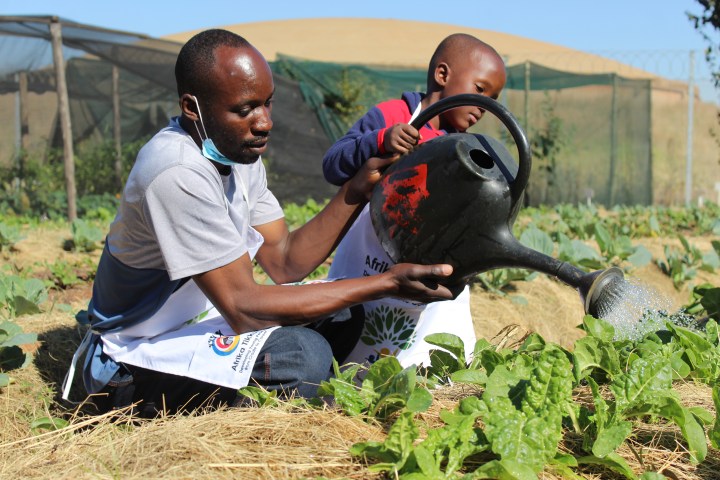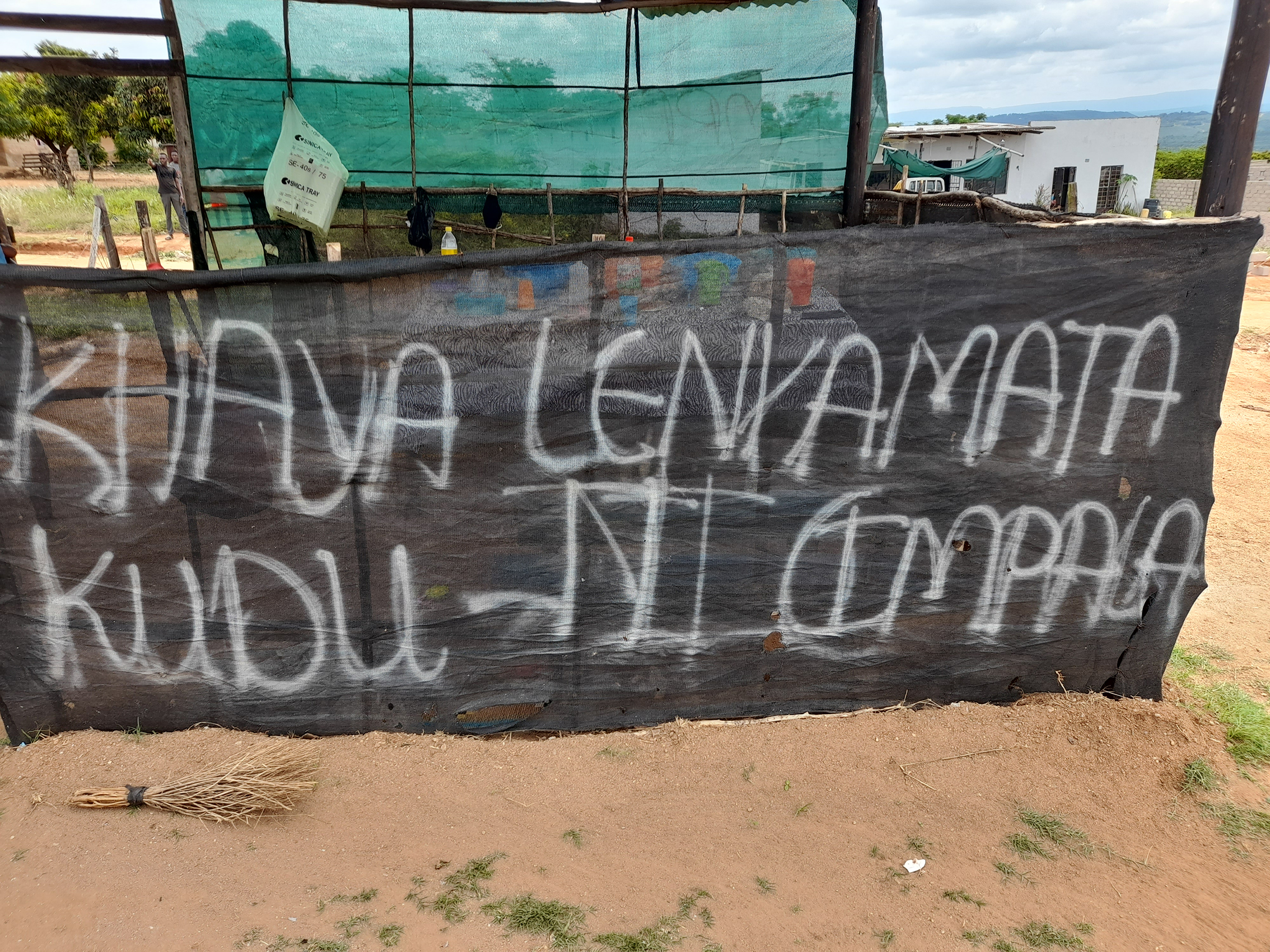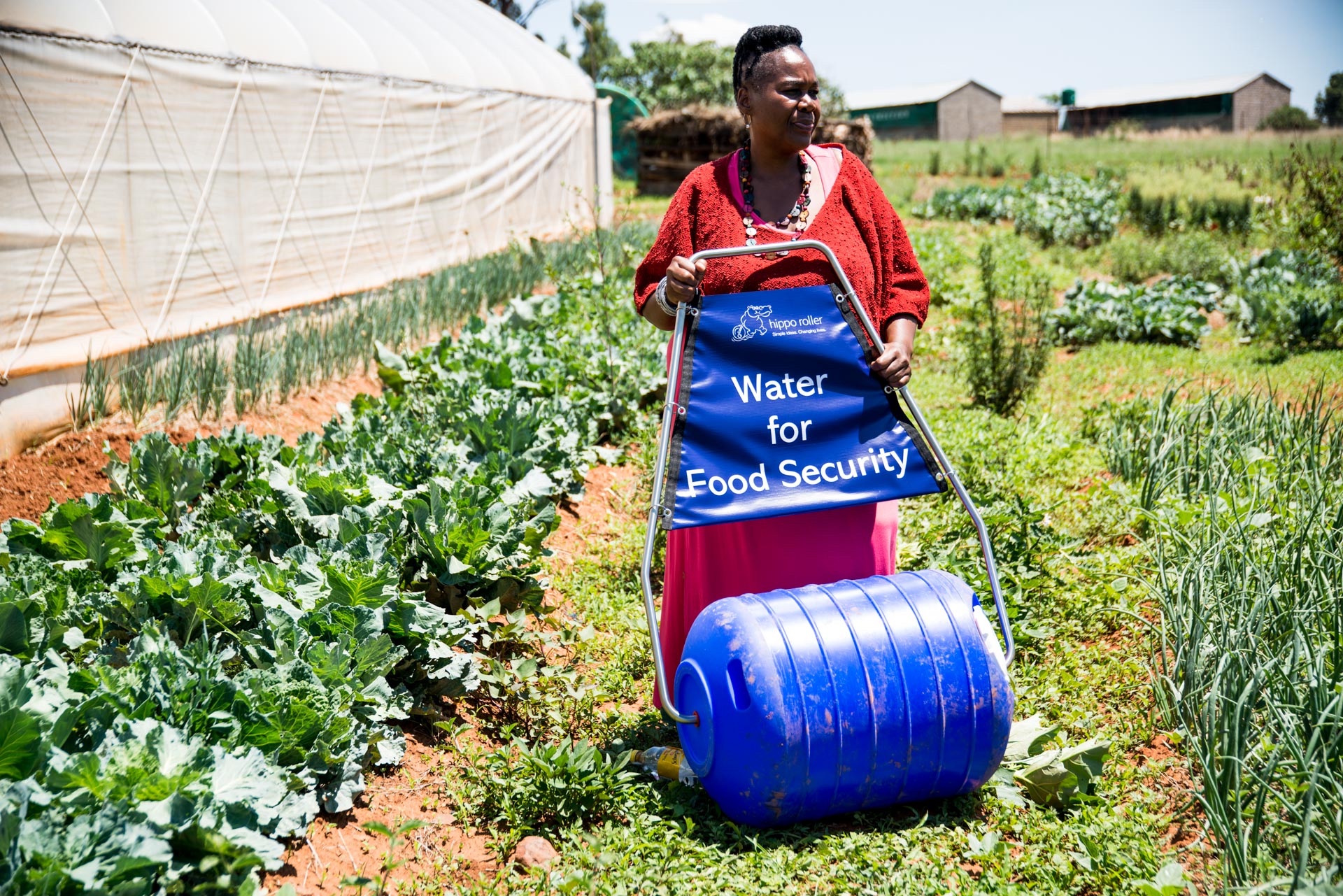FOOD + HERITAGE
Growing into our roots, from wild garlic to game meat

Pandemic silver linings are few and far between but an amplified interest in indigenous ingredients may be a rare break in the coronavirus clouds.
Agroecologist Tim Abaa of Tim Nectar Farms has been training rural, urban and township food gardeners for over a decade. In the past 18 months he says he has “seen a major change in the perception of our African heritage crops. People used to scorn them as poverty food, but no more. There has been a big mindset switch. Covid has caused a rush to the indigenous plants – especially the ones that are believed to be immune system boosting like what they call mhlonyane in isiZulu and lengana in Setswana. Wild garlic too – in townships you always see it planted around houses to keep snakes away but now there is a big demand because people are cooking the leaves like spinach or making it into strengthening tea.”
It is not just South African plants that are popular. Abaa says there is also “much more demand for masonja (mopane worms) because people say that they boost the body’s own disease resistance…” The people are not wrong. Several studies have shown mopane worms to be a magnificent source of climate-friendly protein, iron, calcium, zinc and phosphorus – all of which are known to play a role in immune system functioning.
Dietician Mpho Tshukudu agrees: “There has definitely been more interest in immune boosting, indigenous ingredients in the past 18 months. This comes from various perspectives, both positive and negative. For some it is tied in with those xenophobic conspiracies that are going around. The idea that Covid came ‘from overseas’ and so all things foreign are not to be trusted. For others the desire to eat more indigenous ingredients is coming from an explicit association of globalised, industrial agriculture, disruption of ecosystems, climate change and the emergence of coronaviruses. I see patients increasingly concerned about origin, safety and wholesomeness – there is a sense that the ways in which we have been farming and eating in recent years has led us to this crisis and I think that sense is pushing the focus onto heritage ingredients sourced from smaller, local farmers.”

Dietician Mpho Tshukudu. (Photo: Supplied)
In addition to mopane meat, demand for the flesh of larger indigenous animals has also increased. The informal butchers and shisa nyama workers in and around Hoedspruit and Hazyview report greatly increased sales. This may be a mixed blessing. Vendors spoke on condition of anonymity and wouldn’t reveal the source of their meat – some of which is probably poached. There was a clear view among queuing customers that game meat was a healthy option in unhealthy times. As one observed, “With all this Covid going around we all want to live longer… They say that other meat from those big farms overseas, like in Brazil, is injected; you know, that it has got pills in it, whereas game meat caught wild is pure and protects you from sickness. Especially for our old people with diabetes and so forth. All this means that using game is definitely trending…”
Talking of trending, Gauteng farmer, heritage food activist and online vegetable vendor Siphiwe Sithole of African Marmalade says that, “Covid forced us to get more jacked up. The opportunities for face-to-face sales were greatly reduced so we all had to get better at creating content online – YouTube, TikTok, you name it. I did it to amplify the message and open up sales channels for online purchases.”

Shisa nyama selling game meat. (Photo: Anna Trapido)
In August 2021 Local Wild launched online to “act as a facilitating platform to enable easy and direct market availability of indigenous ingredients”, all of which are grown by small scale Western Cape farmers. Whether you want seepampoen from the farmers at Philippi Economic Development Initiative (PEDI), a bottle of N’Rougas Farm brakslaai chutney, a bag of veldkool grown by Ubuhle Bendaloor or a copy of Loubie Rusch’s Cape Wild Foods: Growers Guide, an epicurean adventure is only a click away. The ability of consumers to easily access responsibly farmed, economically empowering indigenous ingredients through schemes like Local Wild is vital. Foraging for wild foods is not necessarily ecologically sustainable and having big agriculture-appropriate heritage ingredients does nothing to change the power relations between people.

Farmer Siphiwe Sithole. (Photo: Supplied)
Travel restrictions have also played a part in the rising online interest in indigenous ingredients. Sithole says: “As the pandemic has gone on and on, the demand for indigenous crops has steadily increased. I think that there used to be a sense that African traditional food was what we ate when we went home to the rural areas at Easter but this Easter we couldn’t travel. Who knows where we will be this Christmas? They say a fourth wave may be coming so we may well see travel restrictions again. It has been a long time since people who live in cities have been able to go home and they are longing for those comforting old-school tastes.
“We used to bring back supplies when we visited home but the sad truth is that we can’t any longer rely on regular access to the countryside through family visits. This spring I am seeing a sharp rise in orders of indigenous seeds and requests for heritage gardening advice. I think that the increased demand reflects a profound longing to connect with that ancient sense of self. City people have realised that if they want the nutritional, medicinal, emotional and spiritual support that comes with indigenous food they will have to plant and nurture it themselves. It is about literally growing into our roots.”
Pandemic-driven changes in perception and purchasing patterns are encouraging but there is a danger that consumers will slip back into old ways once the immediate anxiety of the Covid threat recedes. If we are to avoid future crises, making waterwise, low carbon, economically and culturally empowering indigenous ingredients easily available to all must be a central part of our strategy for building back better. DM/TGIFood
This author supports Yeoville Meals on Wheels who distribute food parcels to the elderly and needy.





 Become an Insider
Become an Insider
Comments - Please login in order to comment.